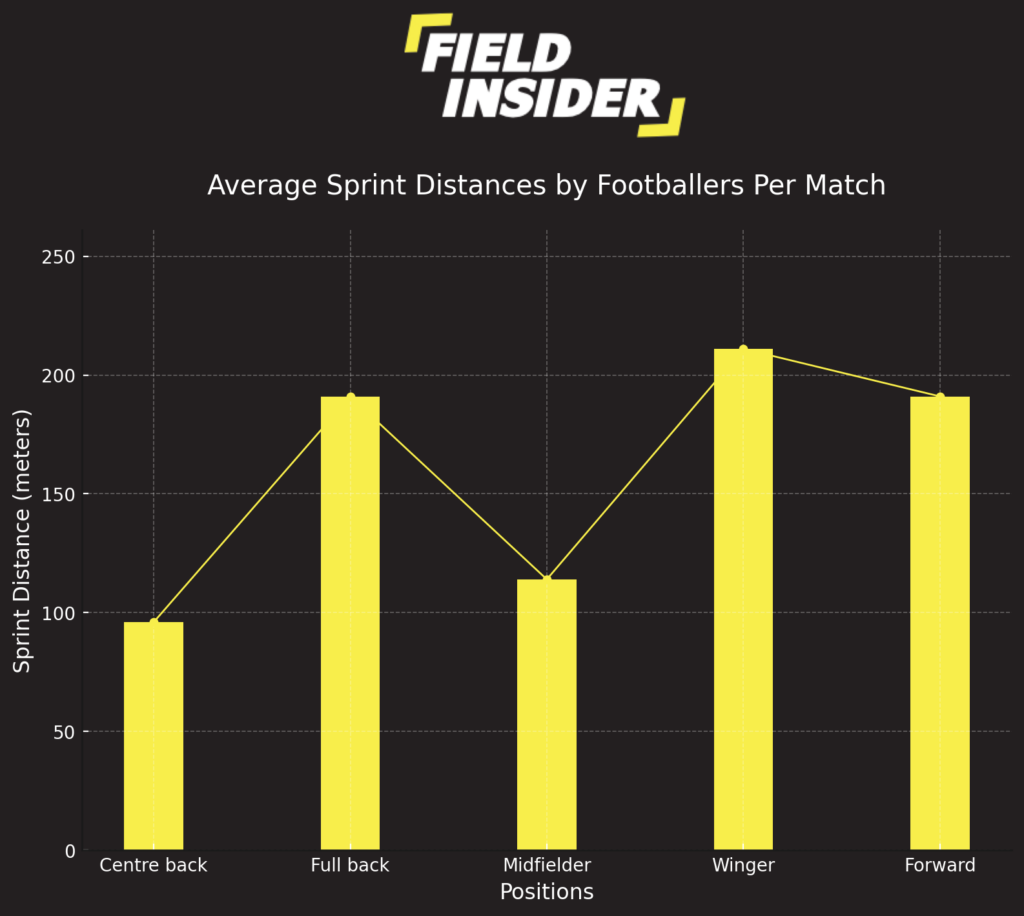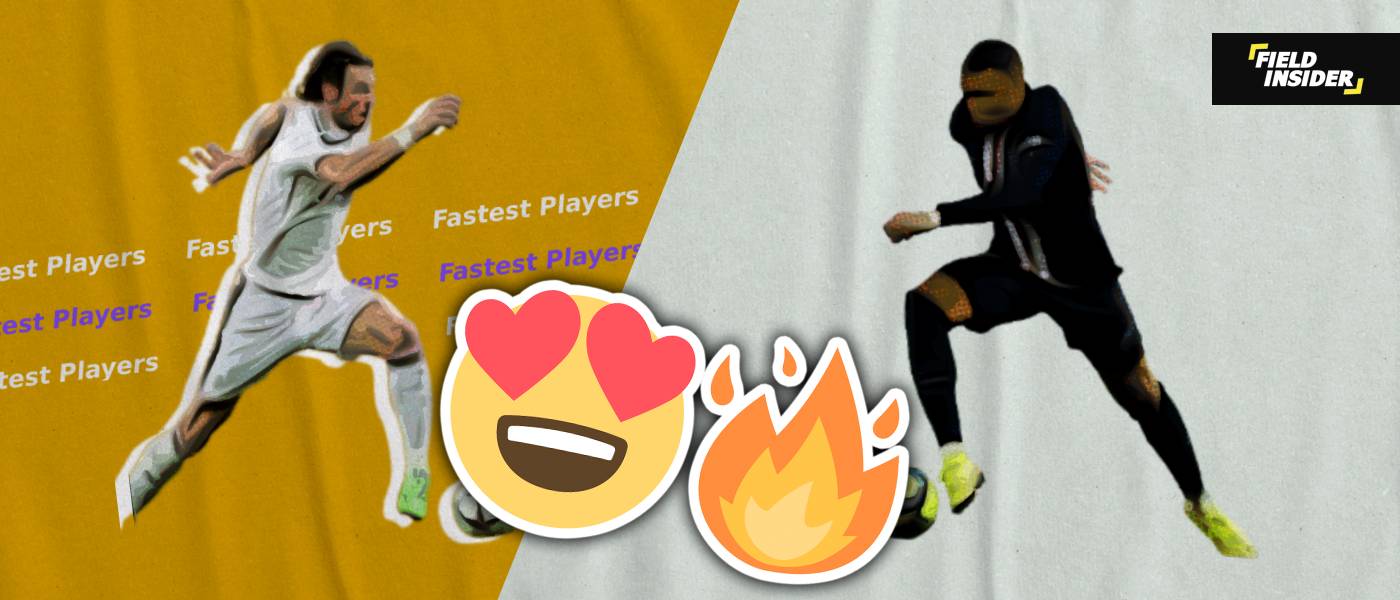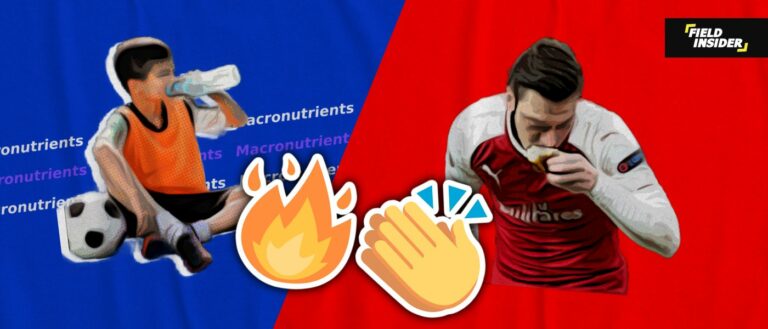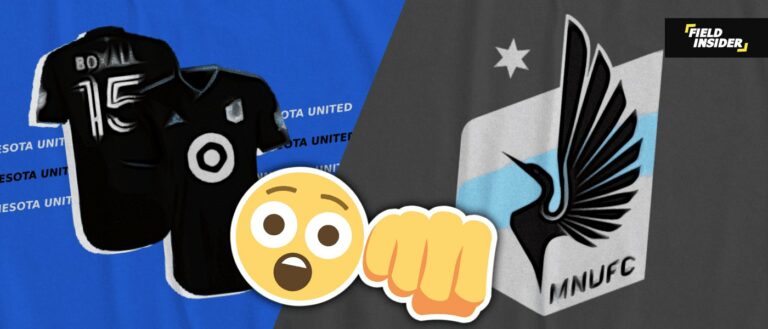How Do Footballers Run For 90 Minutes? Full Guide
Football, a game of endurance, skill, and strategy, demands not only exceptional talent but also an extraordinary level of fitness. Often, footballers run for a total of 90 minutes, showcasing a blend of physical prowess and mental fortitude.
This article delves into the numerous ways footballers prepare for and sustain this remarkable feat.
Key Takeaways
| Category | Key Points |
|---|---|
| Physical Conditioning | Endurance training, strength, and agility work |
| Mental Preparation | Focus, concentration, tactical awareness |
| Game Plan Execution | Positional roles, energy management |
| Nutrition and Hydration | Pre-match meals, in-game hydration, electrolyte balance |
| In-Game Challenges | Dealing with fatigue, coping with injuries |
| Tactical Substitutions | Managerial decisions, fresh legs for impact |
| The Final Push | Last 15 minutes strategies, injury time resilience |
| Post-Match Recovery | Cooling down, rehabilitation, preparing for next match |
Pre-Game Preparation

Physical Conditioning
Physical conditioning is fundamental to a footballer’s ability to run and sustain performance over a full 90-minute match.
Endurance Training
Endurance training is vital for footballers. It builds the stamina required to maintain a high level of play and run throughout the match. This typically includes aerobic exercises such as long-distance running, interval training, and playing small-sided games that simulate match conditions.
Endurance training enhances cardiovascular fitness, crucial for sustaining efforts over the game’s duration.
Strength Training
Strength is another critical component. Footballers engage in strength training to build muscle, increase power, and reduce injury risk. This training involves weightlifting, resistance exercises, and plyometric drills.
Different positions may focus on different muscle groups, with defenders emphasizing upper body strength and midfielders and forwards focusing more on leg strength and core stability.
Agility Work
Agility is essential for footballers to run effectively on the field. Drills that improve agility include cone drills, ladder exercises, and short sprints that enhance the ability to start, stop, and change direction quickly, crucial for evading opponents and maintaining control of the ball.
Flexibility and Mobility
Flexibility and mobility exercises are important for preventing injuries and maintaining a full range of motion. Regular stretching, yoga, or Pilates can help improve flexibility, contributing to better performance and reduced injury risk.
Sport-Specific Drills
Incorporating sport-specific drills into training ensures that the physical capabilities developed are directly transferable to on-field performance. These drills often replicate match situations, helping players to improve their technical skills alongside their physical fitness.
Effective physical conditioning is a blend of endurance, strength, agility, flexibility, and sport-specific training. This comprehensive approach is crucial for footballers to perform at their best, run throughout the match, reduce injury risk, and handle the physical demands of a full-length football match.
Mental Preparation
Focus and Concentration
The ability to stay focused and maintain concentration throughout the game is critical. Players use techniques like visualization and mindfulness to enhance concentration, especially crucial in high-stakes situations like those in the Champions League.
Tactical Awareness
Understanding and implementing game tactics is essential. Players must be familiar with various formations, such as the 3-4-3 and 4-4-2, adapting their play to these strategies.
Mental Resilience
The ability to recover from setbacks quickly is key to a footballer’s mental strength. Resilience training is crucial, especially in high-pressure scenarios like those faced by teams such as Real Madrid.
Decision Making
Rapid and accurate decision-making is essential on the field. Players need to assess situations swiftly and make optimal choices, a skill honed through match scenario simulations.
Stress Management
Effectively managing stress and anxiety is vital for peak performance. Techniques like deep breathing, music, or pre-game rituals help in calming nerves. Understanding these aspects is further explored in articles like Football Scenarios.
Game Intelligence
Understanding the game’s nuances, reading the play, and being strategically ahead is crucial. Players with high game intelligence excel in roles requiring tactical flexibility, as seen in 5-a-side positions.
By focusing on these aspects of mental preparation, footballers ensure they are as mentally fit as they are physically, ready to tackle the challenges of the game with both skill and strategic insight.
The Game Plan
Positional Roles
Understanding and executing one’s positional role is crucial for the success of the team’s overall strategy. Each position, from forwards to defenders, has specific responsibilities and requires a unique skill set.
Forward Players
Forwards need to be adept at finding spaces, making run, and finishing chances. Their role is pivotal in converting opportunities into goals, requiring not just physical speed but also quick decision-making.
Midfielders
Midfielders are often considered the team’s engine. In formations like the 4-3-1-2, they need to balance defensive duties with creating scoring opportunities, requiring excellent stamina and tactical awareness.
Defenders
Defenders must excel in intercepting attacks and protecting their goal. Their role demands physical strength, spatial awareness, and the ability to read the game, crucial in formations like the 5-4-1 which prioritize defense.
Energy Management
Managing energy efficiently throughout the game is key to maintaining peak performance.
Pacing Themselves
Players must know when to exert maximum effort and when to conserve energy, balancing high-intensity sprints with periods of lower activity.
Strategic Rest Periods
Utilizing moments in the game for brief recovery, such as during stoppages or lower-intensity phases, helps in conserving energy for critical periods of the match.
By effectively executing their game plan, focusing on their positional roles, and managing their energy wisely, footballers can significantly influence the outcome of a match. This strategic approach to playing not only enhances individual performance but also contributes to the team’s overall success.
Sprint distances by footballers
The bar chart below consists data from an extensive study of 7,855 matches during the 2020 or 2020/21 seasons across 31 European and American leagues. It highlights the sprint distances covered by footballers in various positions, offering insight into the physical demands of the game.

The bar chart provides a visual analysis of the average sprint distances covered by footballers per match, categorized by their positions on the field . Furthermore , the bar graph depicts the following information ;
- Wingers have the highest average sprint distance per match, indicative of the dual responsibilities of attacking and defending they perform on the flanks.
- Full backs also register a considerable average sprint distance, highlighting their dynamic role in modern football that encompasses both defensive duties and contributing to attacks.
- Midfielders and Forwards show moderately high sprint distances, reflecting their involvement in quick offensive breaks and goal-scoring opportunities.
- Centre backs record the lowest average sprint distance, consistent with their main defensive position, which typically necessitates fewer long-distance sprints.
Nutrition and Hydration
The Right Fuel
Proper nutrition is essential for footballers to perform at their best. What they eat before, during, and after a match can significantly impact their energy levels and recovery.
Pre-Match Meals
The pre-match meal is crucial for providing the energy needed during the game. This meal should be rich in carbohydrates for sustained energy, moderate in protein, and low in fat. Timing is also key, ideally 3-4 hours before kick-off to ensure proper digestion and energy availability.
In-Game Snacking
During the match, quick energy sources can be vital, especially during halftime. Foods like bananas, energy bars, or gels provide a quick glucose boost which helps players to run. For insights into effective nutrition strategies, Footballers Diet and Nutrition offers valuable guidelines.
Staying Hydrated
Hydration impacts not just performance but also recovery and overall health.
Importance of Water
Maintaining hydration levels is essential for optimal physical performance. Dehydration can lead to a significant decrease in endurance and cognitive function, impacting a player’s ability to run, to make decisions and perform physically demanding tasks.
Electrolyte Balance
Replacing lost electrolytes, especially during intense or prolonged physical activity, is crucial. Electrolytes help regulate nerve and muscle function, hydration, blood acidity, and pressure. Sports drinks can be effective in replenishing electrolytes lost through sweat.
Understanding and implementing proper nutrition and hydration strategies are key for footballers to maintain their energy levels. This aspect of preparation is as critical as physical training and mental preparation in ensuring players are game-ready.
In-Game Challenges
Dealing with Fatigue
Managing fatigue is a major in-game challenge that footballers face. As the game progresses, physical and mental tiredness can significantly impact performance.
Mental Toughness
Staying mentally alert as fatigue sets in is crucial. Players must keep their focus sharp and decision-making quick, even when physically exhausted.
Muscle Fatigue
Physical endurance training helps in reducing the impact of muscle fatigue. However, during the game, players need to recognize the signs of fatigue and adjust their play accordingly.
Techniques like proper breathing, pacing during the game, and utilizing brief rest moments effectively can help manage muscle fatigue.
Coping with Injuries
Injuries are an inevitable part of the sport and handling them effectively is crucial.
Quick Recovery Strategies
Immediate treatment and proper management of injuries during the game can prevent them from worsening. This might include on-field medical attention, making necessary tactical adjustments, or deciding whether a player can continue.
Injury Management
Understanding and adhering to injury management protocols is essential. This includes knowing when to rest and when to seek medical intervention. The article Footballers Injury Prone offers insights into common injuries and prevention strategies in football.
In-game challenges like fatigue and injuries test a footballer’s resilience and adaptability. Successfully managing these challenges often makes the difference between winning and losing.
The Fastest Players in the Game
When it comes to players with the best stamina in the game, central midfielders are usually the hardest-working players in the game who have to do the most running in 90 minutes.

Midfielders typically cover the most ground in a game, which is why many are praised for their stamina. However, as demonstrated above, it is also about how frequently footballers can run and their ability to sprint at a high pace repeatedly.
the crazy sprints of Gareth bale
Gareth Bale’s performance in the 2015 Copa del Rey final was one of the greatest examples and displays of incredible fitness. This has become a famous goal that most football fans are familiar with; it is one of Bale’s most impressive goals, among many.
Real Madrid defeated Barcelona 2-1, and it was Bale’s 85th-minute run and finish that sealed the trophy. Bale ran 59.1 meters in 7.04 seconds, completely outpacing the Barcelona defense before finishing past the keeper.
His incredible run even impressed Usain Bolt, and the most impressive part is that Bale started the game, so clocking this insane speed after 85 minutes is an incredible feat.
Tactical Substitutions
Role of the Manager
The manager’s decisions in making substitutions can significantly impact the dynamics of the game. Tactical substitutions are not just about replacing the players who can’t run or injured players but also about adapting to the game’s flow and the opponent’s strategy.
Substitution Strategy
Managers need to have a keen eye on the game’s progression and make timely decisions regarding substitutions. This involves considering players’ fitness levels, the current scoreline, and the opposition’s tactics.
Strategic substitutions can inject fresh energy into the team or shift the tactical approach, as needed.
Fresh Legs for Impact
Bringing on fresh players can provide a significant boost to the team, especially in the latter stages of the game. Substitutes often bring renewed energy, pace, and a different skill set, which can be crucial in breaking down the opposition’s defense or bolstering one’s own.
The impact of fresh legs is particularly notable in positions that require high levels of stamina and speed, like wingers or midfielders.
The Final Push
The last quarter of a football match often determines the outcome. This period is a true test of a team’s endurance, tactics, and mental fortitude.
Pushing Through
In the final 15 minutes, players must gather all their remaining energy and focus to either protect a lead, chase the game, or break a deadlock. This phase demands maximum concentration, as fatigue and pressure are at their highest.
Game-Closing Strategies
Teams may shift their strategies in these closing minutes. For instance, a team with a narrow lead might switch to a more defensive formation like the 5-4-1 to protect their goal, while a team trailing might adopt a more aggressive approach to scoring.
Injury Time and Extra Time
Added time due to injuries and stoppages presents additional challenges and opportunities.
Mental Resilience
The uncertainty and pressure of injury time and extra time require immense mental resilience from players. Keeping composure and maintaining a strategic approach during these unpredictable moments can be game-changing.
Team Dynamics
The cohesion and collective effort of the team become even more crucial. Effective communication, understanding each player’s role, and supporting each other are key to navigating these high-pressure moments successfully.
The final push in a football match is a dramatic and often decisive phase, where physical stamina, tactical intelligence, and mental strength are all put to the test.
Post-Match Recovery

The period following a match is crucial for a footballer’s physical and mental recovery, setting the stage for future performances. This phase involves several key components:
Cooling Down
After 90 minutes of intense physical exertion, proper cool-down exercises are essential. This includes light jogging, stretching, and mobility exercises to help the muscles relax and recover. Cooling down aids in reducing muscle stiffness and soreness, facilitating quicker recovery.
Rehabilitation
If any injuries or strains were sustained during the match, immediate and appropriate rehabilitation is critical. This may involve physiotherapy, massage, ice baths, or specific medical treatments. Timely rehabilitation not only speeds up recovery but also prevents minor issues from becoming chronic problems.
Preparing for the Next Match
The recovery process is also about preparing for the next challenge. This includes adequate rest, nutrition, mental relaxation, and gradual return to training.
Players may engage in light training sessions, focusing on recovery and maintaining fitness levels, before ramping up the intensity as the next match approaches.
Mental Recovery
Mental recovery is as important as physical. Players need to decompress, reflect on the game, and mentally prepare for future matches. This can involve psychological support, relaxation techniques, and spending time away from football to recharge mentally.
Continuous Monitoring and Assessment
Ongoing monitoring of a player’s physical and mental condition post-match is essential. This helps in identifying any areas that need attention and ensuring the player remains in optimal condition for future games.
Post-match recovery is a critical aspect of a footballer’s routine, ensuring they remain fit, healthy, and ready to perform at their best in subsequent games
Conclusion
In conclusion, the article has delved into the comprehensive strategies that footballers employ to maintain high performance and run throughout a 90-minute match. It highlights the remarkable physical and mental endurance required of professional athletes in this demanding sport.
The key to a footballer’s sustained success lies in a well-rounded regimen that equally prioritizes rigorous training, strategic nutrition, and thorough recovery protocols.








